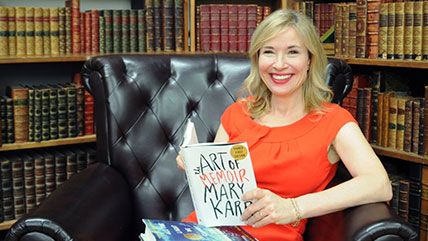Leave the Strand Alone!

For book lovers, the Strand near Manhattan's Union Square is a more treasured landmark than the Empire State Building or the Statue of Liberty. The hallowed haunt was opened in 1927 by Lithuanian immigrant Benjamin Bass, who initially filled its shelves with his personal collection of titles. While the store can't match the convenience of Amazon, its patrons are invited to spend hours browsing in its narrow passageways. "Eighteen miles of books" (as the tote bags say) are stuffed into towering cases and every flat surface across four floors.
Already a cultural landmark, the Strand is now asking the city not to declare it one officially. The New York City Landmarks Preservation Commission has proposed making it a protected building—but as store owner Nancy Bass Wyden, wife of Democratic Oregon Sen. Ron Wyden, tells Reason's Nick Gillespie and Jim Epstein, the Strand has outlived its competitors by remaining "commercially nimble." Regulating the building to preserve it, Wyden explains, could end up destroying the cherished business inside.
Q: Talk about some of the enormous obstacles that your family has overcome to keep this East Coast temple of books open.
A: The store was founded by my grandfather, Benjamin Bass. It was one of 48 bookstores on "Book Row," and he struggled right off the bat because there was so much competition. Then the Depression hit, his wife died, and he ended up having to put my dad and his sister into foster care. He lived on a cot in the basement of the bookstore to survive.
Q: Books were important to him.
A: Books were his life. He went to Columbia but didn't have enough money to finish his degree, so he learned everything from reading.
Q: Book Row is now gone. How did the Strand survive?
A: The Strand survived through my grandfather's and my dad's hard work and their passion. For most of their lives, they worked six days a week, hardly took vacations, and were devoted to keeping the store alive.
My dad, to his credit, started working at age 13. Eventually he saved up all of his money to buy the building. He knew even at a young age that in order to survive in New York City, you have to own the real estate.
Q: Why are you opposed to the city landmarking the Strand?
A: The Strand is not going anywhere. There's no need to protect it. Our family's been a great steward of the building. Landmarking would add another component of government. You add bureaucracy, you add committees, you add people having opinions about what we should do inside the store as well as outside the store. And that does not allow me the flexibility to change with the retail book environment and to serve our customers.
Q: Assume the Strand's building gets designated a landmark, and then you want to renovate. What happens?
A: We already have to go through the Building Department. We already have to get a permit. We already have to get an architect and an engineer. With a landmark designation, we have to go ask this committee that also oversees a huge number of other buildings in New York, and that will get back to us whenever they feel like it with an answer.
It took us two years to just complete the front of the store without the additional layer of landmark status. When we did the restoration, we looked at the granite that was there before and we matched it. We did not need a committee to do that. We've operated the store for 91 years. We've been in this location for 65 years. We've owned the building for 20 years. We do not need their assistance.
Q: Do you worry that you're being selfish? Doesn't the Strand belong to New York?
A: The Landmarks Preservation Commission is not New York. In fact, we recently went to a public hearing about landmarking the Strand and the room was overflowing with people that were on my side.
Q: What do you think explains what the commission is trying to do? They probably like the arts and have shopped at the Strand. How do you explain their indifference to what you're saying?
A: Maybe they feel that they're helping me. I also think that sometimes people are in a position and they need to justify their own existence.
Q: You're not asking for special treatment or tax breaks or subsidies.
A: Just leave us alone. Just let us do what we've been doing for 91 years.
This interview has been condensed and edited for style and clarity. For more on this story, check out the video below.
This article originally appeared in print under the headline "Leave the Strand Alone!."


Show Comments (20)